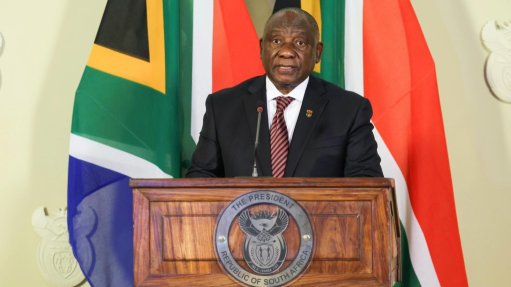Urgent need for tech advance
I made a subtle confession in last week’s column: that I rate the dear departed Kwame Nkrumah, Ghana’s first post- independence leader, as one of the greatest Africans of all time. In my estimation, only the likes of Nelson Mandela surpassed his iconic stature.
As I stated, the speech he delivered in Addis Ababa, Ethiopia, on May 24, 1963, the eve of the founding of the Organisation of African Unity, was most inspiring. He spoke about the need for African unity with a sense of urgency, stressing not only the political and economic dimensions of the unity he envisaged, but also the imperative for scientific and technological advance. He said: “It is within the possibility of science and technology to make even the Sahara bloom into a vast field with verdant vegetation for agricultural and industrial developments. We shall harness the radio, television, giant printing presses to lift our people from the dark recesses of illiteracy.”
He strongly believed that ignoring science and technology was akin to pacing “our needs, our development, our security, to the gait of camels and donkeys”.
But being blasé about science and technology development seems to have afflicted some of our leaders, who would rather devote huge chucks of their national budgets to sustaining unwieldy armies – despite the fact that most African countries are at peace.
Investing in research and development (R&D) in science and technology – which is what Nkrumah hoped to achieve – leads to greater innovation outcomes. This is borne out by a World Economic Forum report released in December, which shows that the countries that are famed for innovation in areas such as engineering and information and communication technology are countries that spend a huge proportion of their resources on R&D. They include South Korea, whose expenditure in 2018 came in at 4.3% of its gross domestic product, followed by Israel (4.2%), Japan (3.4%), Switzerland (3.2%), Finland (3.2%), Austria and Sweden (3.1%), Denmark (2.9%), Germany (2.9%) and the US (2.7%).
It is little wonder, then, that South Korea retained its global crown in the 2019 Bloomberg Innovation Index for the sixth time. The country’s staying power received a boost from fresh investment in strategic technologies and a regulatory programme that encourages startups. Its lead, however, narrowed in part because of lower scores in patent activity.
Now in its seventh year, the index measures dozens of criteria using such metrics as manufacturing capability and concentration of high-tech public companies.
Second-placed Germany almost caught up with South Korea on the strength of added value from manufacturing and research intensity, much of it built around industrial giants like Volkswagen, Robert Bosch and Daimler.
Finland ranked third and Switzerland fourth. Israel became the biggest winner by jumping five spots to fifth position. In sixth position was Singapore, while Sweden, the runner-up in 2018, ranked seventh and the US rose three spots to eighth overall, after falling out of the top ten in 2018. Rounding out the top ten are Japan, in ninth position, and France, in tenth position.
Sixty countries appear in the 2019 Bloomberg Innovation Index. Only two from Africa – Mzansi and Tunisia – made the cut and are ranked fifty-first and fifty-second respectively. It’s about time our leaders paid greater attention to R&D investment and creating the correct environment for innovation. This is because the battle for control of the global economy in the twenty-first century will be won and lost over control of innovative technologies, as one sage once put it.
In his May 1963 speech, Nkrumah also asked: “Unless we establish great industrial complexes in Africa, what have the urban worker and those peasants on overcrowded land gained from political independence?
”So, in addition to pursuing technological advancement, African leaders should be introducing policies that woo investors who will establish the industrial complexes that will create jobs for our young men and women, who bear the brunt of unemployment. That will be the most befitting tribute to Nkrumah’s memory.
Article Enquiry
Email Article
Save Article
Feedback
To advertise email advertising@creamermedia.co.za or click here
Announcements
What's On
Subscribe to improve your user experience...
Option 1 (equivalent of R125 a month):
Receive a weekly copy of Creamer Media's Engineering News & Mining Weekly magazine
(print copy for those in South Africa and e-magazine for those outside of South Africa)
Receive daily email newsletters
Access to full search results
Access archive of magazine back copies
Access to Projects in Progress
Access to ONE Research Report of your choice in PDF format
Option 2 (equivalent of R375 a month):
All benefits from Option 1
PLUS
Access to Creamer Media's Research Channel Africa for ALL Research Reports, in PDF format, on various industrial and mining sectors
including Electricity; Water; Energy Transition; Hydrogen; Roads, Rail and Ports; Coal; Gold; Platinum; Battery Metals; etc.
Already a subscriber?
Forgotten your password?
Receive weekly copy of Creamer Media's Engineering News & Mining Weekly magazine (print copy for those in South Africa and e-magazine for those outside of South Africa)
➕
Recieve daily email newsletters
➕
Access to full search results
➕
Access archive of magazine back copies
➕
Access to Projects in Progress
➕
Access to ONE Research Report of your choice in PDF format
RESEARCH CHANNEL AFRICA
R4500 (equivalent of R375 a month)
SUBSCRIBEAll benefits from Option 1
➕
Access to Creamer Media's Research Channel Africa for ALL Research Reports on various industrial and mining sectors, in PDF format, including on:
Electricity
➕
Water
➕
Energy Transition
➕
Hydrogen
➕
Roads, Rail and Ports
➕
Coal
➕
Gold
➕
Platinum
➕
Battery Metals
➕
etc.
Receive all benefits from Option 1 or Option 2 delivered to numerous people at your company
➕
Multiple User names and Passwords for simultaneous log-ins
➕
Intranet integration access to all in your organisation

















